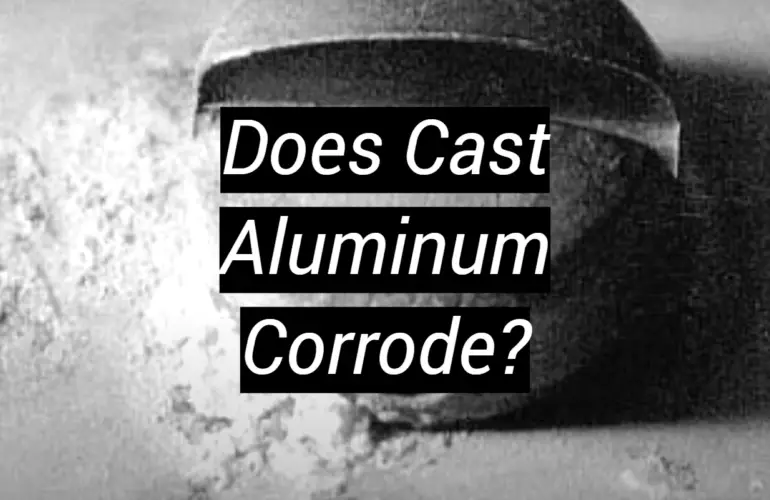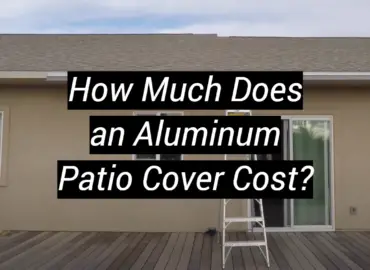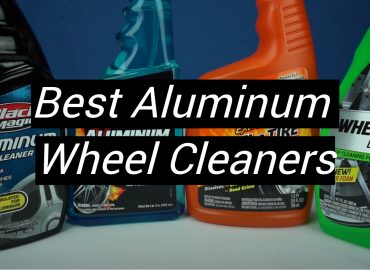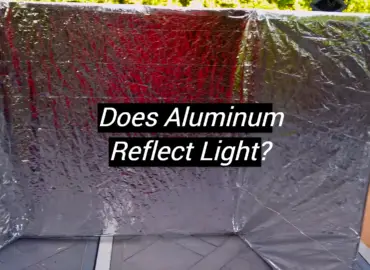If you’re looking for a strong, durable material that won’t succumb easily to weather and wear, you may be considering cast aluminum as a viable option. But does this versatile metal rust? We’ll unpack all of the nuances around this age-old question in our blog post today – so read on if you want to know exactly what’s going on with your potential new material. In order to answer this question accurately, it is important to have an understanding of what cast aluminum is and the advantages it offers over other materials. We will also discuss ways of dealing with any inevitable corrosion issues associated with using cast aluminum in construction or engineering projects.
What Is Aluminum Material?
Aluminum is an incredibly versatile material due to its light weight, durability and strength. It is often used in the construction of buildings, airplanes, automobiles, and ships because it offers superior corrosion resistance.
While aluminum may be expensive to purchase, it is very cost-effective in the long run since it requires minimal maintenance and can last for decades. Additionally, aluminum is highly recyclable making it an environmentally conscious building material option.
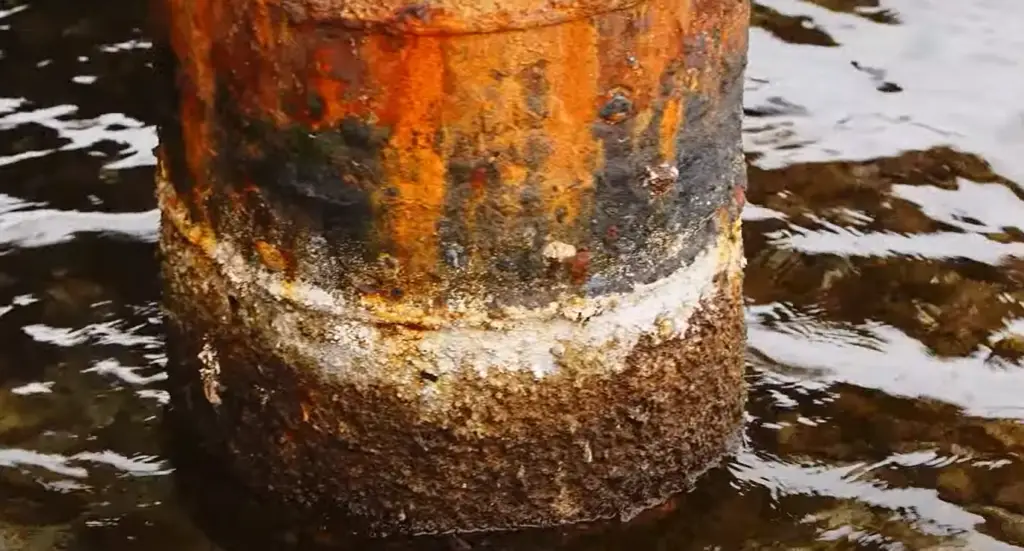
Aluminum is also commonly used as a manufacturing material due to its malleability and ability to form into complex shapes. [2]
Interesting Facts You Need To Know
- Aluminum is the most abundant metal in the Earth’s crust and makes up nearly 8% of the Earth’s surface.
- Aluminum has an extremely low weight to strength ratio, making it one of the strongest metals on earth.
- Aluminum has many uses, including in the production of cars, aircrafts, and newspapers.
- Pure aluminum is extremely malleable.
- It is also resistant to corrosion and doesn’t rust easily.
- Aluminum is highly recyclable and reused over and over again to limit the amount of mining necessary for new aluminum.
- Aluminum is also used in everyday products like foil, cans, and kitchen utensils.
- Aluminum does not biodegrade or decompose easily which makes it an environmental hazard if not disposed of properly.
- Aluminum cans are one of the most recycled materials since they can be melted down and reused. [3]
What Is Rust on Aluminum?
Rust on aluminum is a common issue but can be prevented with proper care and maintenance. This is a reaction that occurs when an aluminum surface comes into contact with oxygen and moisture. It causes the formation of an oxide layer on the metal which in turn can cause corrosion and rusting. This corrosion can lead to weakening of the structure, discoloration, or even pitting and flaking of the aluminum.
Rust will usually occur more quickly if there are any scratches or imperfections on the surface of the metal as these provide points for moisture to collect and facilitate oxidation. To prevent rust from forming it is important to keep all aluminum surfaces clean and dry, regularly inspect them for any signs of wear or damage, and take steps to repair any issues before they worsen. Plus, it is recommended to use protective coatings such as paint or wax to help protect and lengthen the life of aluminum surfaces.
Additional steps that can be taken to minimize rusting on aluminum include avoiding exposure to harsh chemicals, ensuring adequate ventilation when using solvents, regularly cleaning the surface with detergents or other cleaners specifically designed for use on metals, and applying a clear protective coat if necessary. Plus, any scratches or dents in an aluminum surface should be filled in and buffed out to reduce the possibility of corrosion starting in these weak points. Taking preventative measures will pay off over time and result in more durable and longer-lasting aluminum surfaces. [4]
Why Choose Aluminum for Your Project?
Aluminum is a popular choice of material for many different types of construction projects because it is very strong and lightweight. Its exceptional resistance to corrosion makes it an ideal choice for outdoor uses. Aluminum can also be easily machined and formed into complex shapes, making it ideal for custom projects that require precise dimensions and intricate detail. Additionally, aluminum is much more affordable than other metals like steel or titanium, so it’s often the most cost-effective option when budgets are tight. [5]
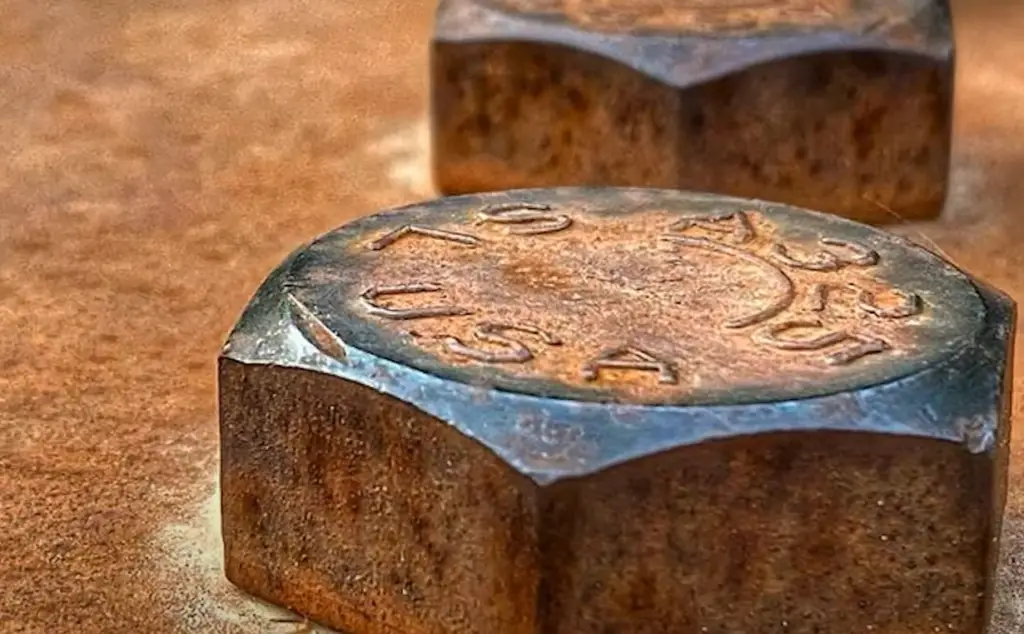
What else is significant is the recyclability of the product. With all these advantages, it’s no wonder why aluminum is such a popular material for construction projects!
What Are Pros of Cast Aluminum?
Cast aluminum is a popular material choice for many applications due to its strength, durability, and lightweight properties. It’s also easier to cast than steel at lower temperatures requiring less energy during production. Additionally, it has powerful corrosion resistance and can be treated with protective coatings to further extend the life of the metal surface.
In comparison to other metals such as steel or iron, cast aluminum weighs much less without sacrificing any of its structural integrity or physical characteristics. This makes it ideal for use in automotive and marine applications where weight is an important factor. Its low melting point also means that delicate parts can be molded with greater accuracy and repeatability than other metals which require higher temperatures.
Furthermore, cast aluminum is often much cheaper than other metals which makes it an attractive option for large-scale production runs. Its excellent thermal conductivity also makes it an ideal choice for heat sinks and other components that require efficient cooling or heat transfer. [6]
Overall, cast aluminum is a versatile material with many advantages over other metal options. It’s lightweight, strong, corrosion resistant, and relatively inexpensive to produce making it a great choice for a variety of industrial and consumer applications.
What Are Cons of Cast Aluminum?
Although cast aluminum is a strong, lightweight material with many benefits, it has some drawbacks to consider before using it in certain applications.
Moreover, cast aluminum is susceptible to corrosion from outdoor elements and exposure to chemicals, so it may require protective coatings or special treatments to increase its durability.
Some finishes applied on cast aluminum may not last as long as those applied on other materials such as stainless steel due to its porous nature. Consider all these factors before deciding if cast aluminum is right for your project. [7]
Rust VS Corrosion – Key Aspects of Comparison
Rust and corrosion are two of the most significant environmental issues that affect metal structures. They both cause damage to metal, but they differ in several important ways.
Rust is an oxide that forms on steel and iron due to moisture and oxygen while corrosion is a process where chemical reactions break down metals such as aluminum or iron.
In terms of appearance, rust appears as reddish-brown or orange patches on the surface of the metal whereas corrosion looks like white fuzz or powder on the metal surface.

Rust can be removed from steel surfaces with a wire brush while corrosion requires more intense removal techniques like sandblasting or special cleaning solutions.
In terms of cost, rust can usually be repaired relatively cheaply by repainting affected areas. Corrosion usually requires more expensive repairs such as replacing parts or entire structures.
In terms of long-term effects, rust can limit the life expectancy of metal structures whereas corrosion is often a sign that metal has already been weakened and may require more intensive repairs.
Rust can eventually lead to structural failure if left unaddressed while corrosion will usually only affect the surface layer of a material.
Overall, rust is a visible form of degradation while corrosion is an invisible process that slowly weakens metal components over time. Both rust and corrosion need to be addressed in order to maintain the integrity of any structure but each issue needs to be evaluated separately in order to determine the best solution for repair and prevention.
Rust also differs from corrosion in terms of its effects on the environment. Rust is a natural process that breaks down iron and steel, so it does not pose any direct environmental risks. Conversely, corrosion releases hazardous chemicals into the atmosphere which can be toxic to aquatic life and other animals. [8]
Consequently, rust should always be addressed promptly in order to limit the amount of damage while corrosion needs to be managed carefully in order to avoid releasing hazardous substances into the air or water.
Different Types of Aluminum Corrosion
Aluminum corrosion can be divided into two categories: uniform and galvanic.
Uniform Corrosion
This type of corrosion is caused by the exposure of the aluminum to a corrosive environment, such as salty air or acid rain. In this case, the entire surface of the metal will corrode at an even rate. It is generally seen in outdoor applications where protection from environmental elements is limited. The most common form of uniform corrosion on aluminum is pitting or crevice corrosion.
Galvanic Corrosion
It occurs when two dissimilar metals are placed in contact with each other in a corrosive environment like salty air or acid rain. In this case, one metal acts as an anode and the other as a cathode. The anodic metal will corrode more quickly than the cathodic one. This type of corrosion is common in industrialized areas or places with high levels of air pollutants, such as marine environments. It can also be seen on aluminum structures near steel components, such as bolts or nails. In order to prevent galvanic corrosion, it is important to use materials that are compatible with each other. Additionally, protective coatings should be applied to all exposed surfaces to minimize contact between metals and corrosive elements.
Understanding the different types of aluminum corrosion can help you determine which type of protection would be best for your application. By following proper preventive measures, you can extend the life and performance of your aluminum structures and components. [9]
How To Protect Cast Aluminum From Rust?
One of the best ways to protect cast aluminum from rust is to coat it with a layer of oil or wax. This will prevent moisture from coming into contact with the metal and will create a barrier that will help to keep the surface free of rust. Choice of oil and wax will vary depending on the climate and environment where it is being used, but some common choices are mineral oil or beeswax. Be sure to apply a thin layer of oil or wax at regular intervals in order to keep the coating effective.
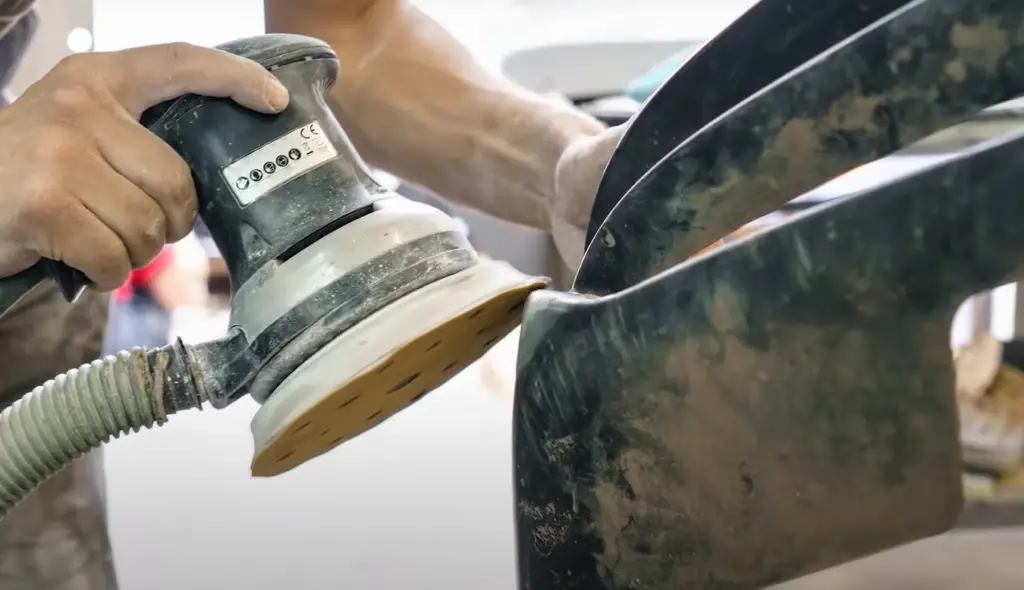
Another way to protect cast aluminum from rust is by using a clear sealant. This type of protective barrier can be found in many home improvement stores and can help to keep moisture away from the metal surface. The sealant should not be applied directly onto the metal as it may cause discoloration, so make sure to use an applicator such as a brush or sponge for best results.
Try also primer and paint. It’s important to choose a paint that is specifically designed for aluminum, and to follow the manufacturer’s instructions when applying it. Make sure to clean the area well before painting and use multiple light coats for best results.
Regularly cleaning any exposed areas of your cast aluminum with soap and water is also recommended as this will help remove dirt and dust which may attract moisture leading to potential rust formation.Keep an eye out for signs of corrosion such as orange or yellow-colored stains and address them as soon as possible. Taking the necessary steps to protect cast aluminum from rust will help ensure that it has a longer lifespan and looks great for years to come. If you’re looking for an even more permanent solution, you could consider galvanization or powder coating.
Galvanization is the process of applying a thin layer of zinc over the metal which protects it from corrosion and rusting. It is necessary to apply galvanic coatings to combine the basic properties of the metal and its coating in the product. Galvanization is applied to aluminum to protect the part from rust, to give it decorative properties or to provide specific properties: the ability to weld, to improve electrical characteristics, to protect against screw seizure, to increase wear resistance, to improve the attachment of rubber.
Powder coating involves spraying a fine dry powder onto the surface of your cast aluminum pieces which then hardens into a protective barrier when heated. Both of these techniques provide excellent protection against rust, however they should be done by professionals in order to achieve optimal results. [10]
FAQs
Does cast aluminum oxidize?
Yes, cast aluminum will oxidize when exposed to moisture and oxygen. To protect against oxidation, aluminum must be treated with a protective coating such as anodizing or powder-coating. Anodizing is the process of electrochemically converting the surface of the metal into a corrosion-resistant oxide film.
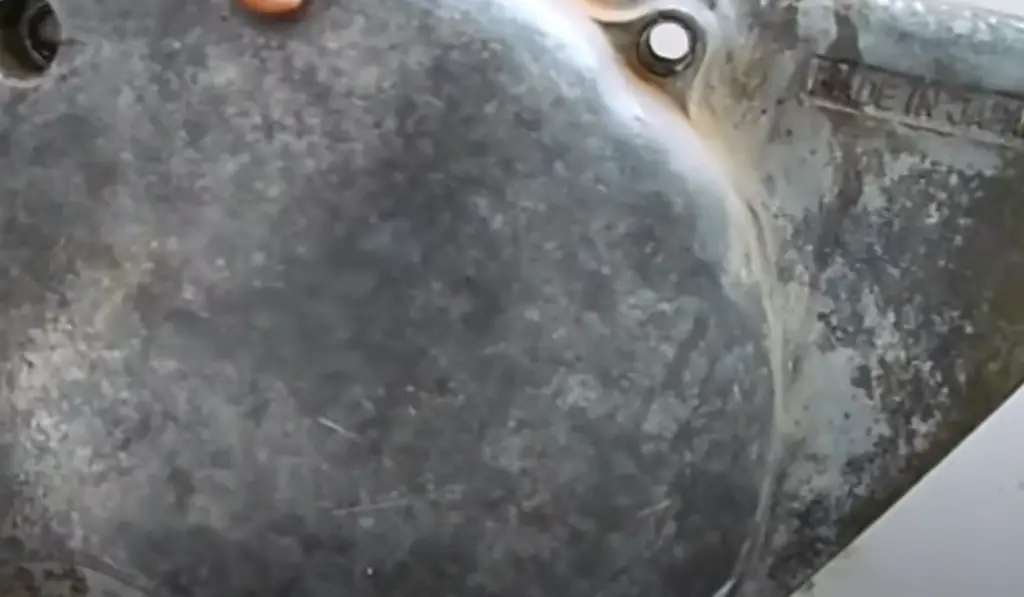
Powder coating is a process in which a dry powder that contains resin and pigment is applied to the cast aluminum surface electrostatically and then baked until cured. Both processes provide excellent protection against oxidation.
Does aluminum rust easily?
No, aluminum does not rust easily. Aluminum is a metal alloy that contains iron, but it does not have the same chemical makeup as iron and therefore cannot rust in the same way. Despite its lack of rusting capability, aluminum can be affected by oxidation processes which cause a white powdery substance to form on the surface of the metal. This oxide layer serves as a protective barrier against further corrosion. With proper maintenance and protection from environmental elements, aluminum can maintain its attractive appearance for many years.
How long does cast aluminum last?
Cast aluminum is an extremely durable metal, designed to withstand wear and tear over the years. With proper care and maintenance, cast aluminum can last for decades without needing repairs or replacement. However, depending on the environment it’s in and how often it’s used, the lifespan of cast aluminum can vary greatly. To ensure maximum longevity, be sure to take precautions against rusting or corrosion by washing regularly with soap and water and protecting it from extreme weather conditions. Additionally, inspect the metal periodically for any signs of damage or wear and tear so that you can fix any issues before they become bigger problems. With these simple steps, your cast aluminum should serve you well for many years to come!
Does cast aluminum rust in winter?
No, it will not rust in winter. Cast aluminum is one of the most corrosion-resistant metals available and does not require any additional treatments to protect from oxidation due to exposure to cold weather conditions. Cast aluminum is also resistant to salt water damage and extreme temperature variations, making it a great choice for outdoor applications in areas that experience harsh winters. Additionally, cast aluminum has excellent thermal conductivity properties which makes it ideal for use in colder climates where heat retention is essential.
Useful Video: How To Protect Aluminum From Corrosion – Vapor Honing Technologies
Final Words
After examining the use of cast aluminum and its multiple applications, we see that it is a great choice if you’re looking for something durable and lightweight. Despite its corrosion prone nature, there are ways to avoid it and protect the material. If treated correctly and protected from corrosion, it can provide a strong and durable surface with excellent results. Rust prevention techniques such as painting, galvanizing or anodizing can be helpful in keeping rust at bay. While rust itself is not likely to cause any major problems, it does erode the effectiveness of cast aluminum and adversely affects its overall appearance.
Ultimately, taking preventative measures is the best way to avoid incurring extra expenses that may come due to corrosion – so be proactive!
References:
- https://www.aluminiumleader.com/about_aluminium/what_is_aluminum/
- https://www.weerg.com/guides/what-are-aluminium-alloys
- https://tampasteel.com/interesting-facts-about-aluminum/
- https://www.thyssenkrupp-materials.co.uk/does-aluminium-rust
- https://tampasteel.com/5-reasons-to-choose-aluminum-for-your-next-project/
- https://www.tfgusa.com/cast-aluminum-advantages/
- https://blog.thepipingmart.com/metals/advantages-and-disadvantages-of-cast-aluminum/
- https://themasterchemistry.com/differences-between-rust-and-corrosion/
- https://www.corrosionpedia.com/understanding-aluminum-corrosion/2/6954
- https://amcaluminum.ph/ways-protect-aluminum-corrosion/

